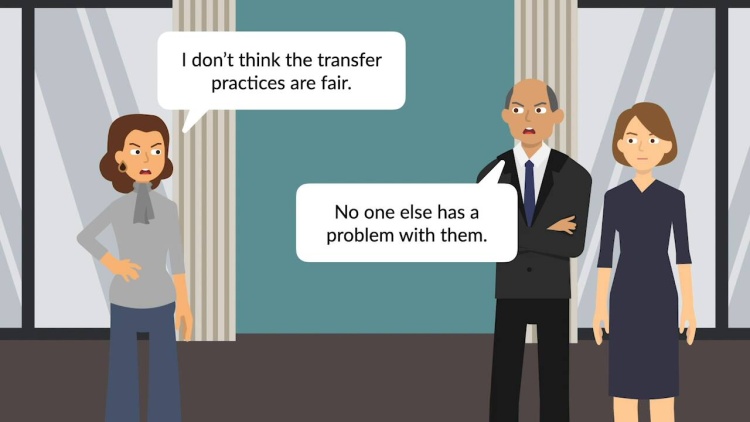Connick v. Myers
United States Supreme Court
461 U.S. 138 (1983)
- Written by Megan Petersen, JD
Facts
Sheila Myers (plaintiff) was an assistant district attorney employed in New Orleans in the office of Harry Connick, Sr. (defendant), the New Orleans district attorney. Connick told Myers that she would be transferred to prosecute cases in a different area of the criminal court. Myers opposed this transfer, and she expressed her view to Connick and other supervisors. When told that her views were not shared by other employees, Myers conducted a survey of her fellow employees’ views on the transfer policy, office morale, the need for a grievance committee, the level of confidence in supervisors, and whether employees felt pressured to work in political campaigns. Connick was informed by one of his assistants that Myers was creating a “mini-insurrection” in the office. Connick terminated Myers due to her refusal to accept the transfer, and because he believed her distribution of the questionnaire to be an act of insubordination. Myers challenged her termination in federal district court on the ground that it violated the First Amendment’s protection of freedom of speech. The district court held for Myers, relying on the Supreme Court’s holding in Pickering v. Board of Education, 391 U.S. 563 (1968), that a “state cannot condition public employment on a basis that infringes the employee’s constitutionally protected interest in freedom of expression.” The court of appeals affirmed, and the United States Supreme Court granted certiorari.
Rule of Law
Issue
Holding and Reasoning (White, J.)
Dissent (Brennan, J.)
What to do next…
Here's why 907,000 law students have relied on our case briefs:
- Written by law professors and practitioners, not other law students. 47,100 briefs, keyed to 996 casebooks. Top-notch customer support.
- The right amount of information, includes the facts, issues, rule of law, holding and reasoning, and any concurrences and dissents.
- Access in your classes, works on your mobile and tablet. Massive library of related video lessons and high quality multiple-choice questions.
- Easy to use, uniform format for every case brief. Written in plain English, not in legalese. Our briefs summarize and simplify; they don’t just repeat the court’s language.





